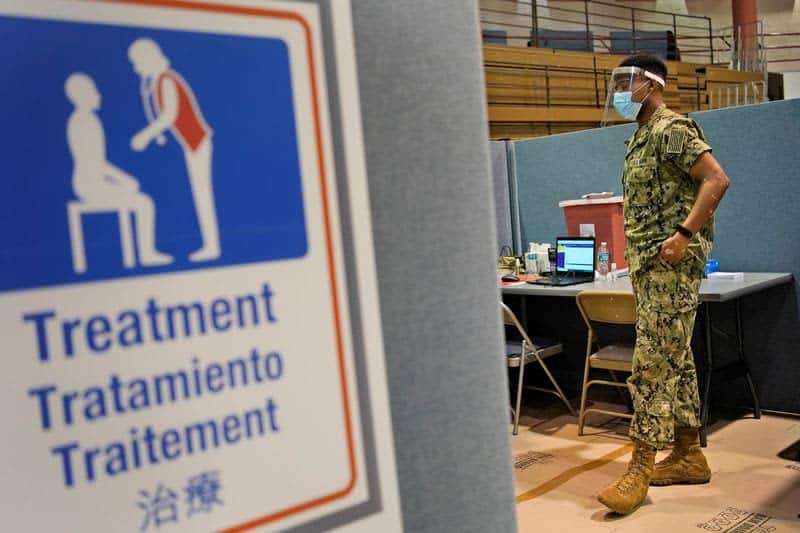Reuters

By Lawrence Hurley
WASHINGTON (Reuters) -The U.S. Supreme Court on Friday granted a request by President Joe Biden's administration to let the Navy decline to deploy SEALs and other special operations forces personnel who refused mandatory COVID-19 vaccination due to religious objections.
The court put on hold part of a federal judge's ruling stating that 26 members of the elite Navy SEALs and nine other special operations forces personnel were entitled to a religious exemption to the vaccine requirement under the U.S. Constitution's First Amendment, which protects the free exercise of religion, as well as a law called the Religious Freedom Restoration Act.
“In this case, the district court, while no doubt well-intentioned, in effect inserted itself into the Navy's chain of command, overriding military commanders' professional military judgments,” Justice Brett Kavanaugh wrote in a concurring opinion.
The court — which has a 6-3 conservative majority — was divided, with three conservative justices saying they would have denied the request.
In a dissenting opinion, conservative Justice Samuel Alito said that the court “does a great injustice” to the Navy personnel who “appear to have been treated shabbily.”
Under another part of Texas-based U.S. District Court Judge Reed O'Connor's ruling not affected by the Supreme Court action, the service members cannot be disciplined or discharged as a result of refusing the vaccine.
Besides the SEALs, the other nine plaintiffs include specialist naval craft crewmen, divers and a bomb disposal expert.
On Feb. 28, the New Orleans-based 5th U.S. Circuit Court of Appeals rejected a similar request from Biden's administration.
The administration is contesting O'Connor's Jan. 3 decision in favor of the servicemembers, in which the judge wrote that their “loss of religious liberties outweighs any forthcoming harm to the Navy.”
(Reporting by Lawrence Hurley; editing by Jonathan Oatis)



